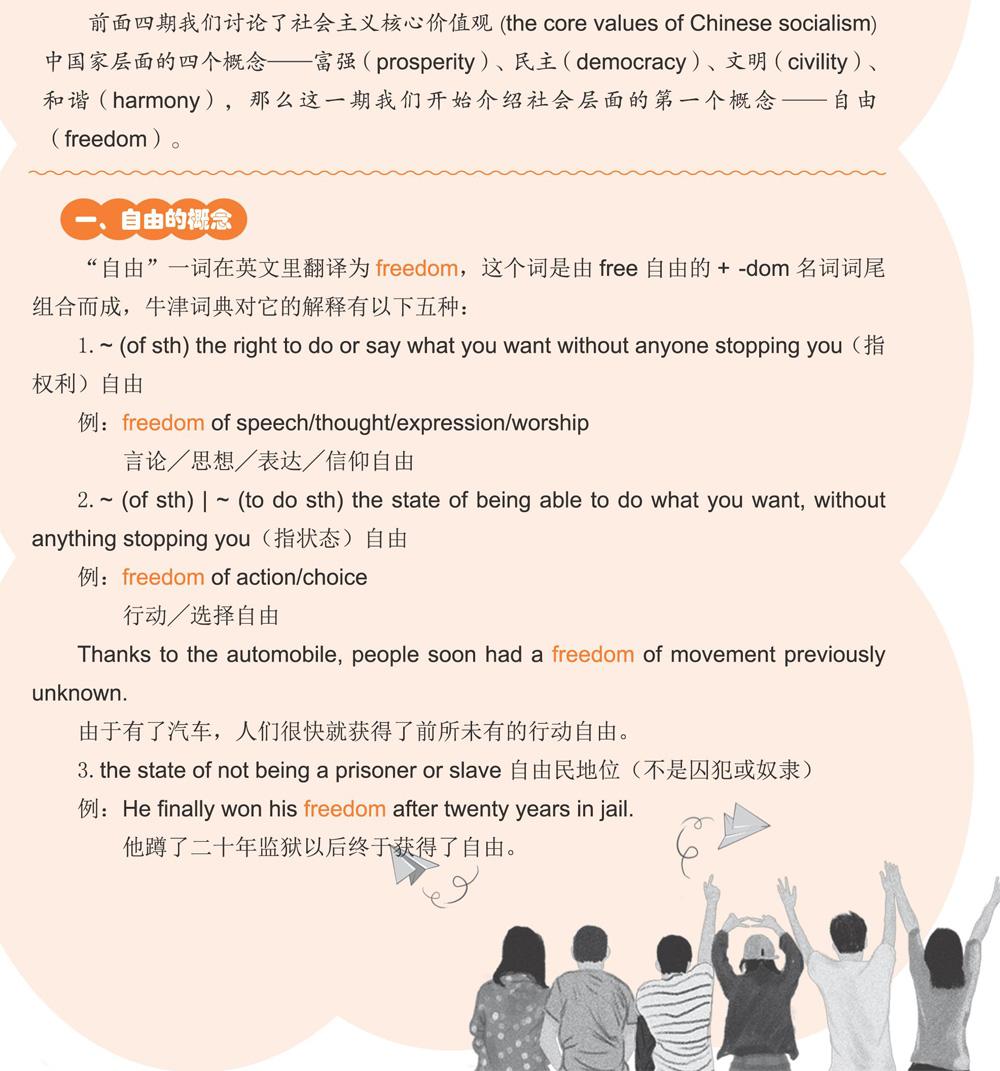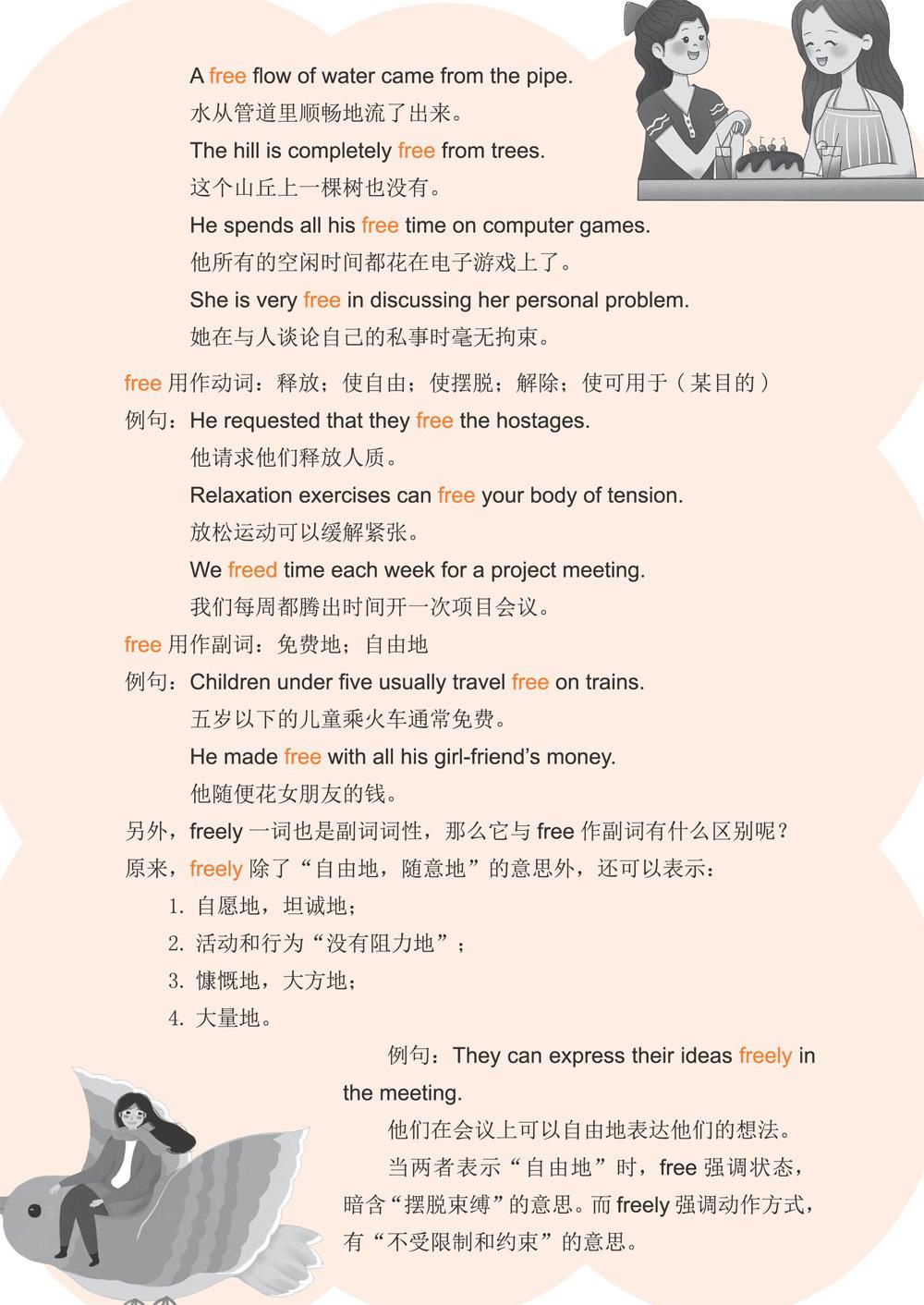口语步步高:Freedom
陶艺丞



前面四期我们讨论了社会主义核心价值观(the core Values of Chinese socialiSm)中国家层面的四个概念——富强(prosperity)、民主(democracy)、文明(civility)、和谐(harmony),那么这一期我们开始介绍社会层面的第一个概念——自由(freedom)。
此外,还有一个习语(idiom)与它有关呢,叫做“the freedom of the city”,它指的是(英国)荣誉市民称号[(in Britain)an honour that is given to sb by a city aS areward for work they have done]。
我们之前提到freedom是由free+-dom组成的名词,free这个词在日常生活中经常见到。其实这个词除了有名词词性,同时还可以作为形容词、动词、副词使用哦,我们一起来看看吧!
free用作形容词:
自由的;免费的;畅通的;没有……的;未使用的:空闲的;随意的
例句:The prisoners wish to be free again。
囚犯们希望重获自由。
Is the book for free or for a charge?
这本书是免费的,还是收费的?
A free flow 0f water came from the pipe。
水从管道里顺畅地流了出来。
The hill is completely free from trees。
这个山丘上一棵树也没有。
He spends all his free time 0n computer games。
他所有的空闲时间都花在电子游戏上了。
She is very free in discussing her personal problem。
她在與人谈论自己的私事时毫无拘束。
用作动词:释放;使自由;使摆脱:解除:使可用于(某目的)例句:He requested that they free the hostages。
他请求他们释放人质。
Relaxation exercises can free your body Of tension。
放松运动可以缓解紧张。
We free time each week for a project meeting。
我们每周都腾出时间开一次项目会议。
用作副词:免费地:自由地
例句:Children under five usually travel free on trains。
五岁以下的儿童乘火车通常免费。
He made free with all his girl-friend's money。
他随便花女朋友的钱。
另外,freely一词也是副词词性,那么它与free作副词有什么区别呢?原来,free除了“自由地,随意地”的意思外,还可以表示:
1.自愿地,坦诚地;
2.活动和行为“没有阻力地”;
3.慷慨地,大方地:
4.大量地。
例句:They can express their ideas free inthe meeting。
他们在会议上可以自由地表达他们的想法。
当两者表示“自由地”时,free强调状态,暗含“摆脱束缚”的意思。而freely强调动作方式,有“不受限制和约束”的意思。

